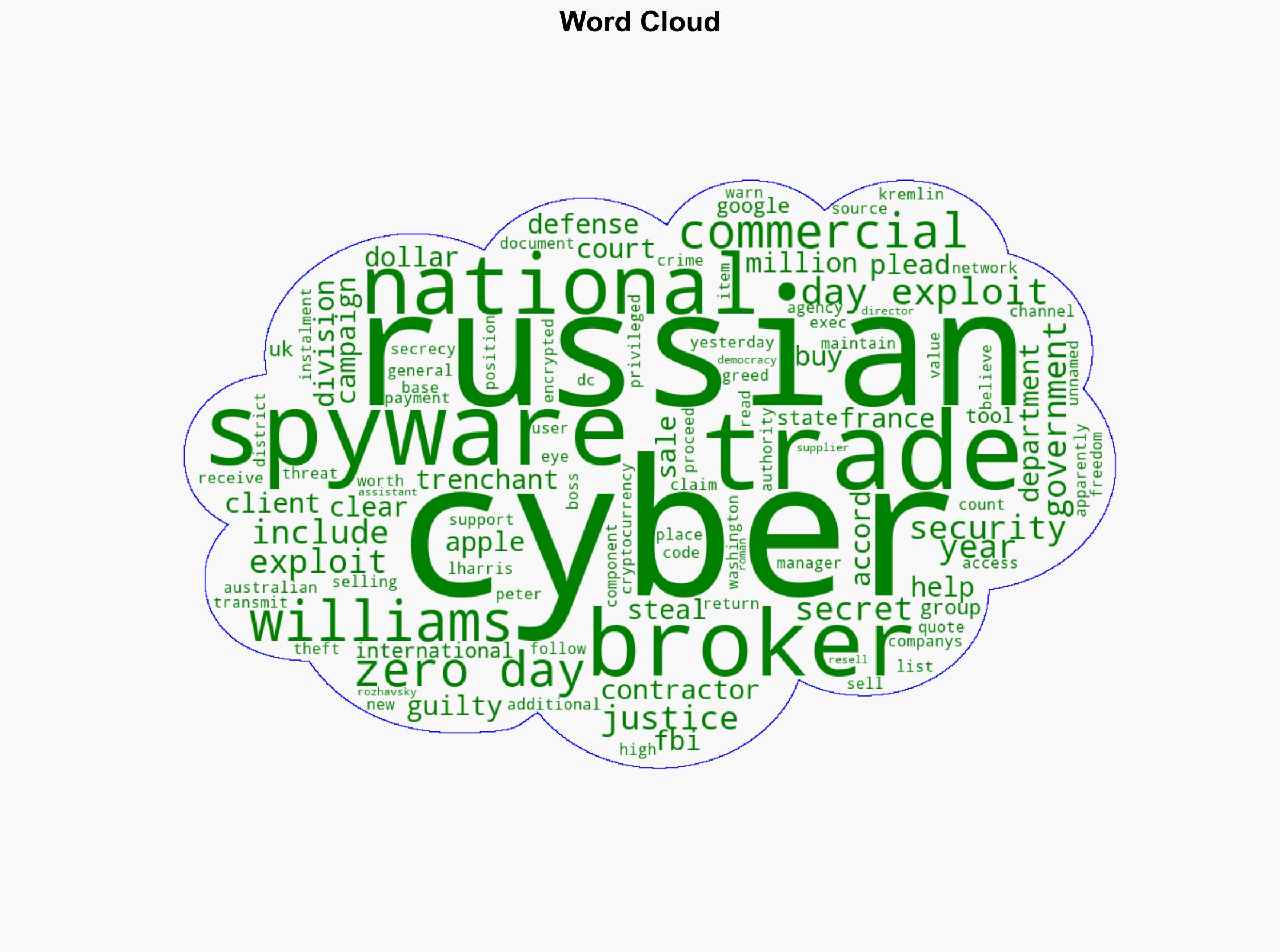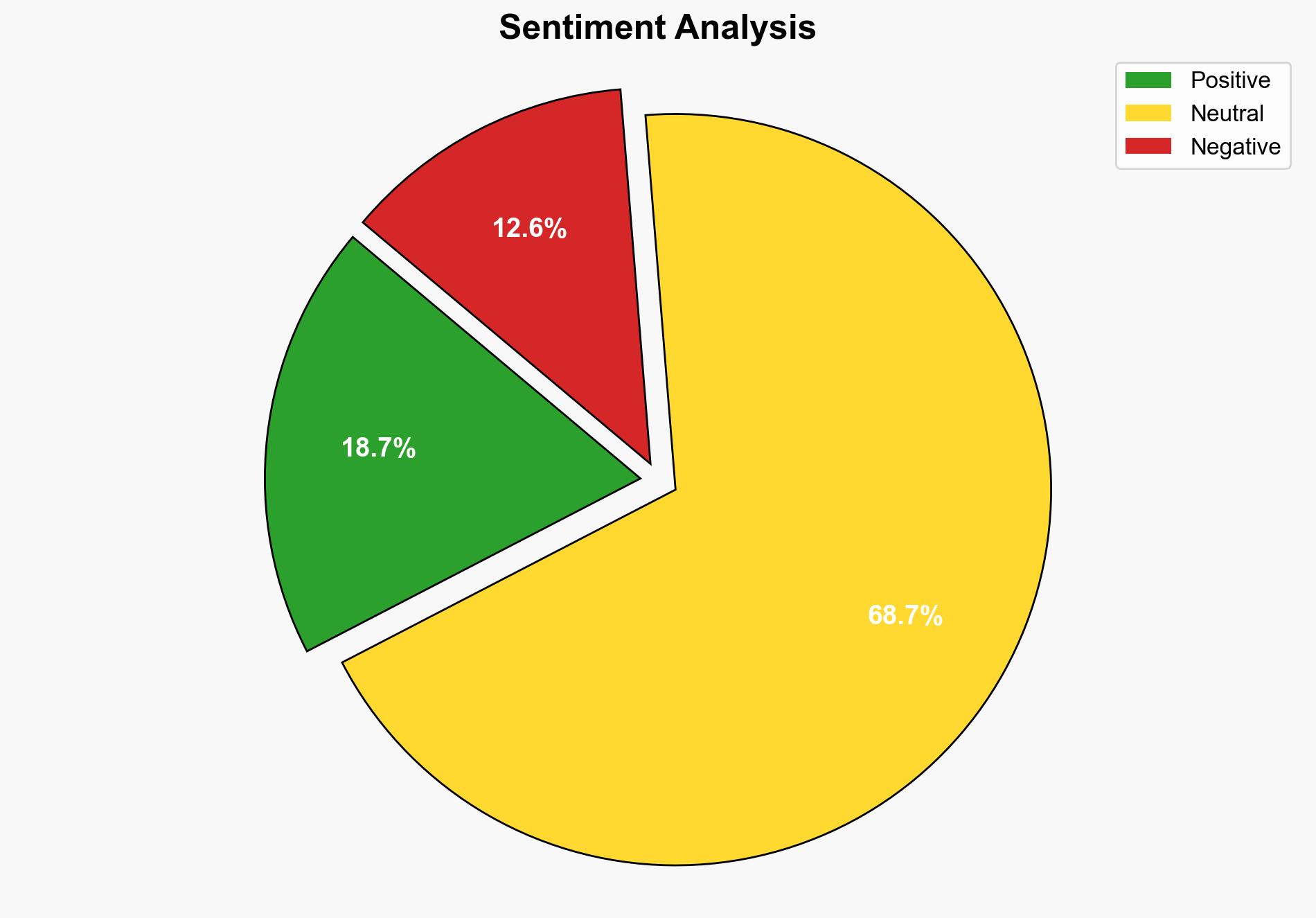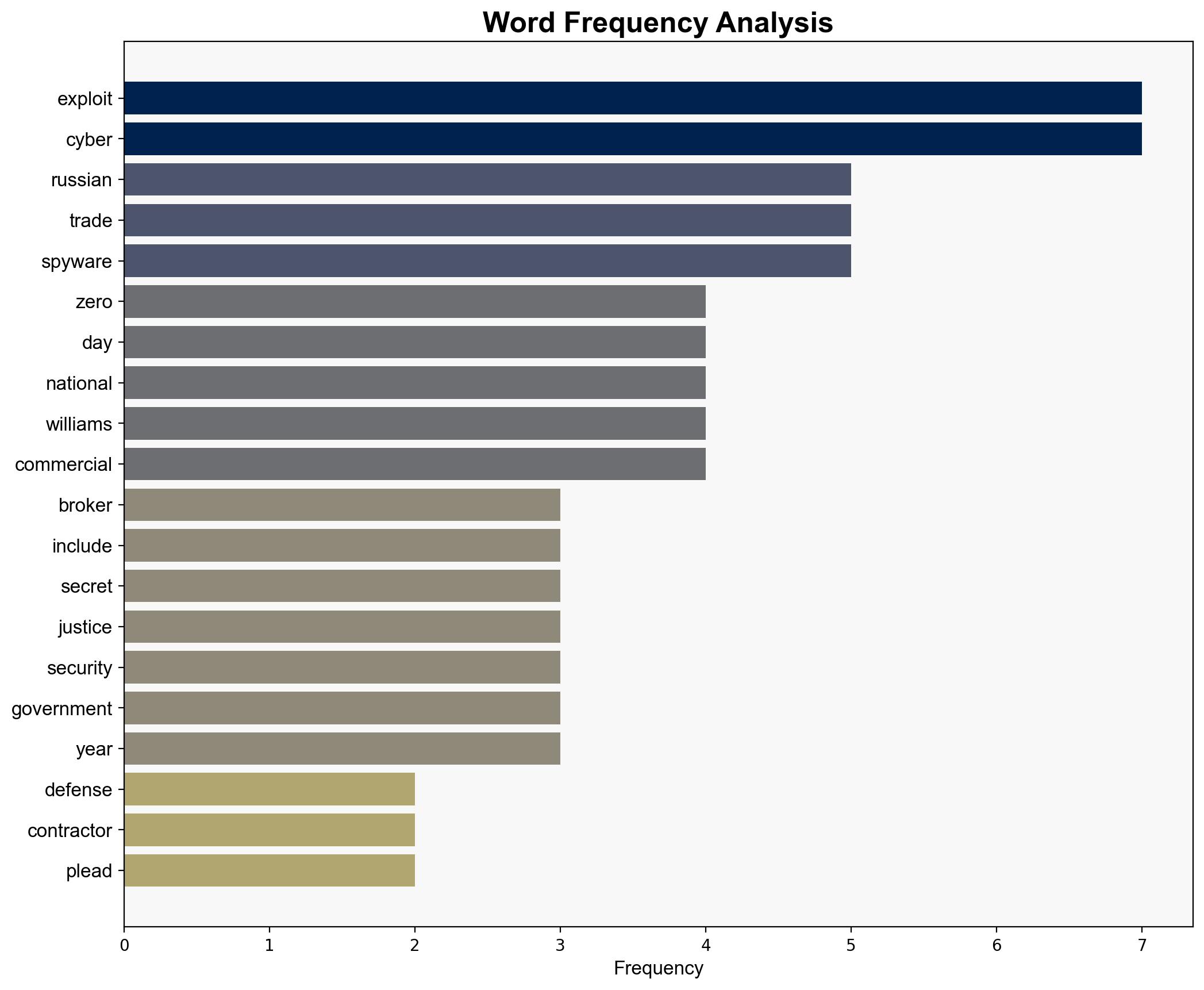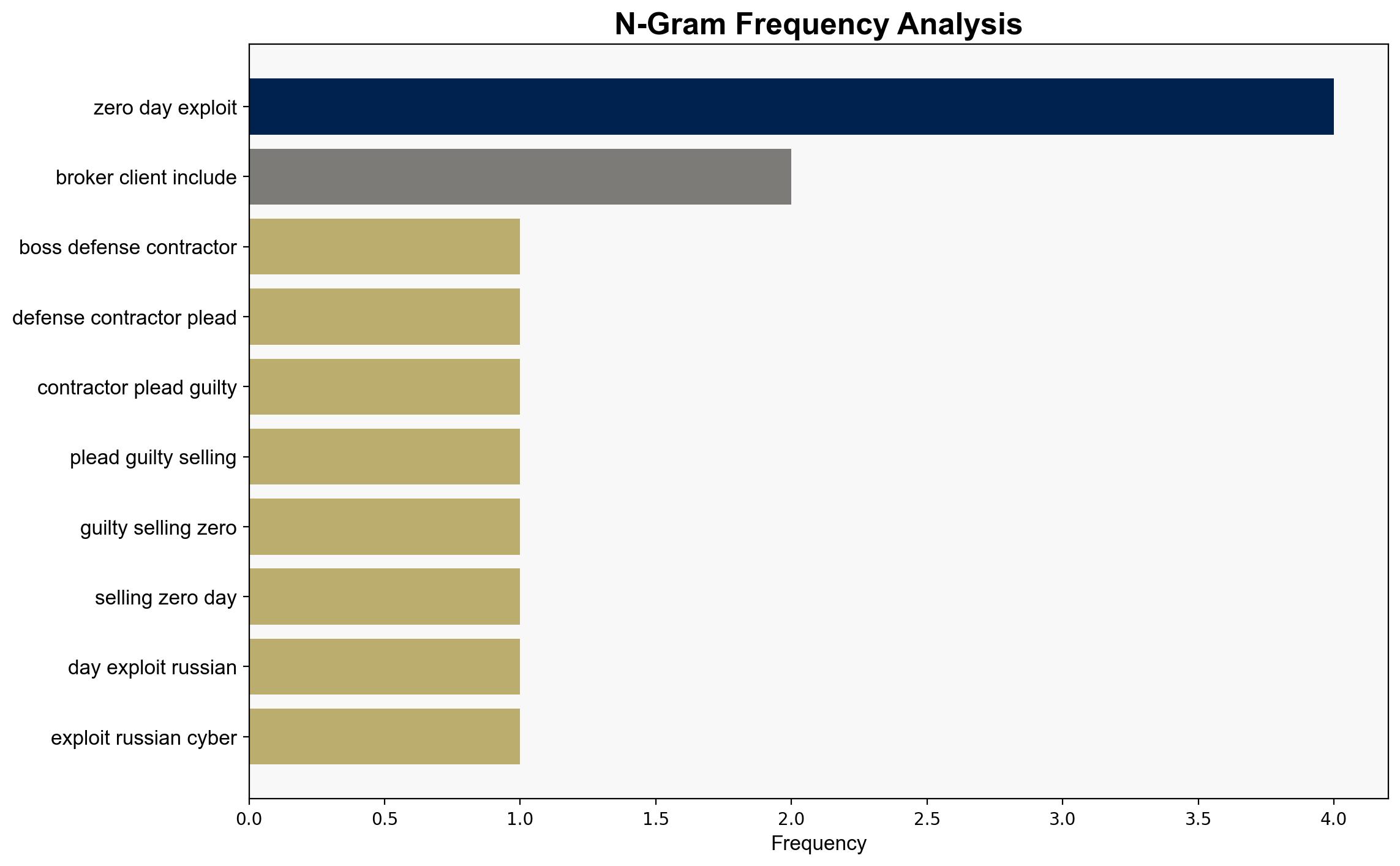Defense Contractor Boss Pleads Guilty to Selling Zero-Day Exploits to Russia – Infosecurity Magazine
Published on: 2025-10-30
Intelligence Report: Defense Contractor Boss Pleads Guilty to Selling Zero-Day Exploits to Russia – Infosecurity Magazine
1. BLUF (Bottom Line Up Front)
The most supported hypothesis is that Peter Williams acted independently for personal financial gain, exploiting his position to sell zero-day exploits to Russian entities. This poses a significant national security threat, highlighting vulnerabilities in contractor oversight and cybersecurity protocols. Confidence level: High. Recommended action: Strengthen vetting and monitoring processes for individuals with access to sensitive cyber tools, and enhance international cooperation to curb the illicit trade of zero-day exploits.
2. Competing Hypotheses
1. **Hypothesis A**: Peter Williams acted independently, motivated by personal financial gain, leveraging his access to sensitive cyber tools to sell zero-day exploits to Russian entities.
2. **Hypothesis B**: Peter Williams was part of a larger network within the defense contractor industry, systematically selling sensitive information to foreign adversaries, potentially with tacit approval or oversight failures from higher levels within the organization.
Using ACH 2.0, Hypothesis A is better supported by the evidence, as the court documents and the nature of the transactions suggest individual motivation and secrecy. Hypothesis B lacks direct evidence of a broader conspiracy or organizational involvement.
3. Key Assumptions and Red Flags
– **Assumptions**: It is assumed that Williams acted alone based on the available evidence. There is an assumption that the transactions were motivated purely by financial gain.
– **Red Flags**: The lack of detailed information on the potential involvement of other individuals within the organization. The possibility of other undiscovered breaches or sales.
– **Blind Spots**: Limited insight into the internal security measures of the defense contractor and the potential for other similar breaches.
4. Implications and Strategic Risks
The sale of zero-day exploits to Russian entities could enhance their cyber capabilities, posing risks to national security and critical infrastructure. This incident underscores the need for robust cybersecurity measures and international collaboration to prevent similar breaches. The potential for cascading threats includes increased cyber espionage and attacks on both public and private sectors.
5. Recommendations and Outlook
- Enhance vetting and continuous monitoring of individuals with access to sensitive cyber tools.
- Strengthen international agreements to regulate and monitor the trade of zero-day exploits.
- Scenario Projections:
- Best Case: Strengthened cybersecurity protocols prevent future breaches, and international cooperation curtails illicit exploit trade.
- Worst Case: Continued breaches lead to significant national security threats and economic impacts.
- Most Likely: Incremental improvements in cybersecurity measures with ongoing challenges in international regulation.
6. Key Individuals and Entities
– Peter Williams
– L3Harris Cyber Division
– Russian cyber broker
– Unnamed broker
– FBI’s Roman Rozhavsky
– Attorney Jeanine Ferris Pirro
7. Thematic Tags
national security threats, cybersecurity, counter-terrorism, regional focus





